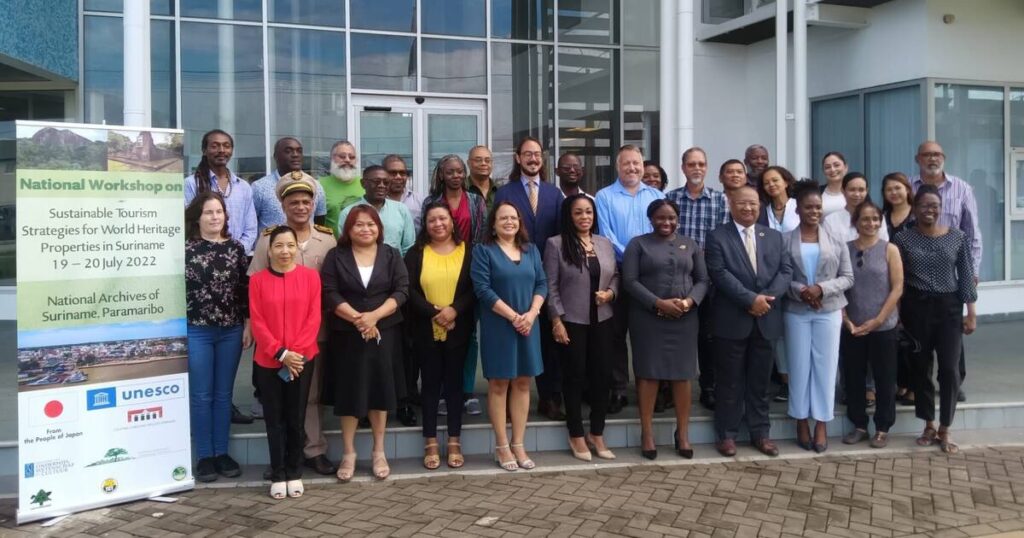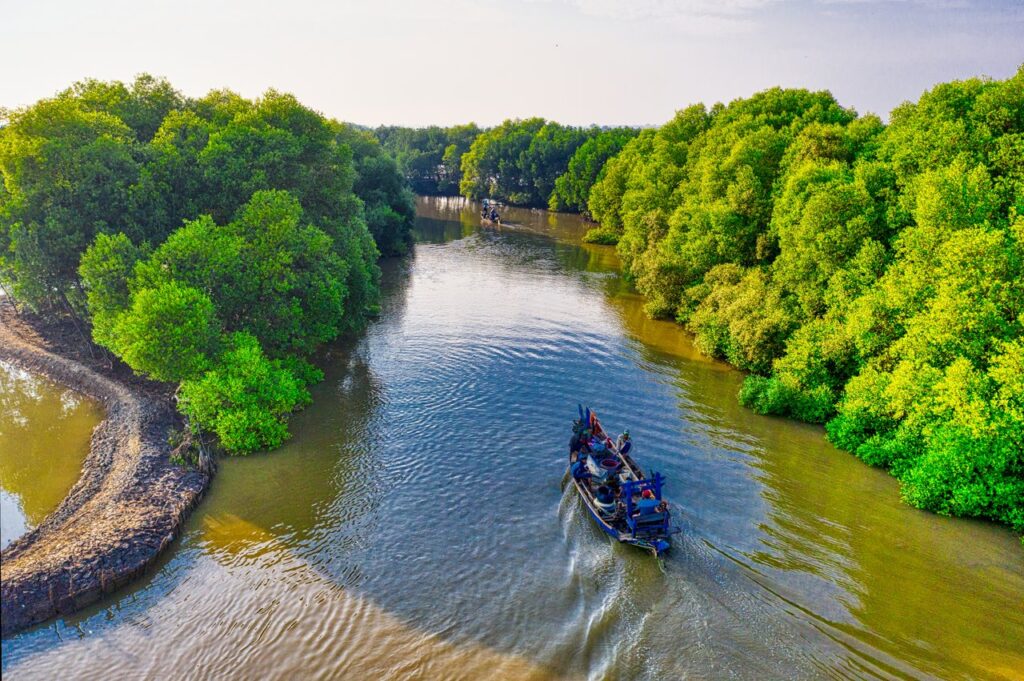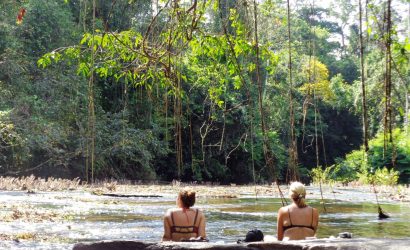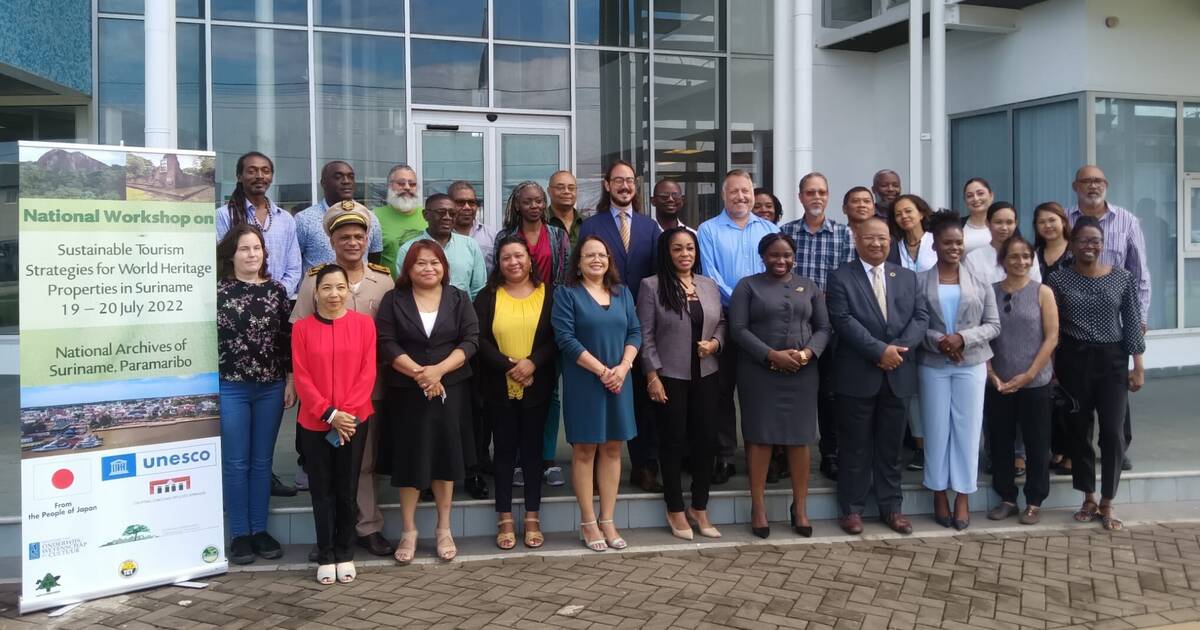So, you’re interested in sustainable tourism in Suriname. That’s great! Suriname is a beautiful country with a rich biodiversity and unique cultural heritage, and it’s important to ensure that we can continue to enjoy and appreciate all that it has to offer for years to come. In this article, we’ll discuss some content tips for sustainable tourism in Suriname, so that you can make a positive impact on the environment and local communities during your visit.
Firstly, when it comes to sustainable tourism, it’s all about being mindful of your actions and their potential impact. Suriname is home to some incredible natural wonders, such as the stunning rainforests and diverse wildlife. When visiting these areas, make sure to follow designated trails and guidelines set by the local authorities. This helps to minimize any disturbance or damage to delicate ecosystems.
Additionally, support local businesses and communities when planning your itinerary. By staying in locally-owned accommodations, eating at locally-owned restaurants, and buying locally-made souvenirs, you can contribute directly to the local economy and empower local communities. This also allows you to have a more authentic and immersive experience, as you get to interact with the local people and learn about their way of life.
In this article, we’ll delve deeper into other important content tips for sustainable tourism in Suriname, such as responsible wildlife viewing, cultural sensitivity, and minimizing waste. So, if you’re excited to learn more about how you can be an eco-friendly and culturally-responsible traveler, keep reading!

Understanding Sustainable Tourism
Sustainable tourism has become an increasingly important topic in today’s world. It focuses on preserving the natural and cultural heritage of a destination while minimizing the negative impacts of tourism activities. Suriname, a hidden gem in South America, is committed to promoting sustainable tourism practices. In this article, we will delve into the various aspects of sustainable tourism in Suriname and provide you with valuable tips on how to be a responsible traveler.
Defining Sustainable Tourism
Sustainable tourism refers to the development and management of tourism in a way that balances the economic, environmental, and socio-cultural aspects of a destination. It aims to create a positive and lasting impact on the local communities and the environment. Sustainable tourism goes beyond simply conserving natural resources and also focuses on empowering local communities, promoting responsible travel behaviors, engaging in ethical wildlife tourism, and developing sustainable infrastructure.

Importance of Sustainable Tourism in Suriname
Suriname, known for its diverse ecosystems and vibrant cultural heritage, recognizes the importance of sustainable tourism for both its present and future. By embracing sustainable practices, Suriname ensures the preservation of its unique biodiversity, supports local livelihoods, and enhances the overall travel experience for visitors. Sustainable tourism in Suriname also contributes to the country’s goal of becoming a leading green destination in the region.
Preserving Natural Resources
Suriname is blessed with stunning natural landscapes, including lush rainforests, pristine rivers, and a rich variety of flora and fauna. To preserve these natural resources, the country has implemented various conservation efforts.
Conservation Efforts in Suriname
Suriname has established protected areas and national parks to safeguard its biodiversity. Efforts such as the Central Suriname Nature Reserve, which is a UNESCO World Heritage site, aim to preserve the country’s unique ecosystems. These conservation areas are home to rare species, including the giant river otter, the jaguar, and numerous bird species.
Promoting Eco-Friendly Practices
Suriname encourages eco-friendly practices by promoting sustainable tourism operators and accommodations that adhere to environmental guidelines. Many eco-lodges and resorts in Suriname have implemented renewable energy sources, water and waste management systems, and organic farming practices. By choosing to stay at these eco-friendly accommodations, you can minimize your environmental impact and support the local economy.
Reducing Environmental Impact
In addition to eco-friendly practices, there are several steps you can take as a responsible traveler to reduce your environmental impact in Suriname. Avoid littering and dispose of your waste properly, particularly plastic waste which can be harmful to wildlife. Respect the natural environment by staying on designated trails and not disturbing plants and animals. Finally, conserve water and energy by using them sparingly during your stay.
Empowering Local Communities
Tourism has the potential to bring significant economic benefits to local communities. In Suriname, sustainable tourism plays a crucial role in empowering local businesses, encouraging cultural exchange, and enhancing livelihood opportunities.
Supporting Local Businesses
Supporting local businesses is essential for sustainable tourism. When you travel to Suriname, make an effort to stay at local guesthouses, eat at local restaurants, and purchase locally made products. This way, you contribute directly to the local economy and help create sustainable livelihoods for the community.
Encouraging Cultural Exchange
Suriname is known for its diverse cultural heritage, with influences from Indigenous, African, Indian, Chinese, and European communities. Engage in cultural activities such as traditional music and dance performances, handicraft workshops, and cooking classes. Respect local customs and traditions and always seek permission before taking photographs of people or sacred sites. By immersing yourself in the local culture, you contribute to the preservation of traditional knowledge and enhance the authenticity of your travel experience.
Enhancing Livelihood Opportunities
Sustainable tourism initiatives in Suriname aim to create job opportunities for local communities and support their sustainable development. By participating in community-based tourism activities, such as homestays or guided tours led by community members, you directly contribute to the livelihoods of the people living in these areas. These experiences also provide a unique opportunity for cultural exchange and a deeper understanding of the local way of life.
Promoting Responsible Travel
Responsible travel is a fundamental aspect of sustainable tourism. It involves being mindful of the impacts of your actions and making conscious choices that benefit the destination and its local communities.
Educating Tourists on Sustainable Practices
Suriname actively promotes responsible travel behavior by educating tourists about sustainable practices. Before your trip, familiarize yourself with the local customs and traditions, as well as the environmental and cultural sensitivities of the region you plan to visit. Be aware of any protected areas or specific regulations that may be in place. We recommend reaching out to local tourism organizations or visiting their websites for up-to-date information.
Respecting Local Customs and Traditions
While exploring Suriname, it is crucial to respect the customs and traditions of the local communities. Dress modestly when visiting religious or indigenous sites, and always ask for permission before entering certain areas or engaging in cultural activities. Respect sacred spaces and avoid any behavior that may be deemed disrespectful.
Minimizing Waste Generation
Waste management is a significant challenge in many tourism destinations, and Suriname is no exception. To minimize waste generation, reduce your use of single-use plastic items such as water bottles, straws, and plastic bags. Instead, bring a reusable water bottle and cloth bag with you. Dispose of your waste properly and use recycling facilities if they are available.

Engaging in Ethical Wildlife Tourism
Suriname is home to a range of unique wildlife species, and ethical wildlife tourism provides an opportunity to observe and appreciate them in their natural habitat. However, it is crucial to engage in responsible wildlife tourism practices to ensure the well-being and conservation of the animals.
Supporting Responsible Wildlife Sanctuaries
When choosing wildlife experiences in Suriname, opt for responsible wildlife sanctuaries that prioritize the welfare and conservation of the animals. These sanctuaries provide suitable habitats and are involved in research and conservation efforts. Avoid attractions that exploit animals or participate in activities that involve captive or wild animals being used for entertainment purposes.
Avoiding Harmful Animal Interactions
It is essential to maintain a safe distance from wildlife and avoid any activities that may cause stress or harm to the animals. Do not feed wild animals, as it can disrupt their natural behavior and diet. Respect any guidelines provided by guides or park officials and remember that your actions can have long-term consequences for the wildlife and their habitats.
Participating in Conservation Initiatives
Many conservation initiatives in Suriname offer opportunities for visitors to actively contribute to wildlife conservation efforts. Consider volunteering or participating in citizen science projects that monitor and protect animal species. These activities allow you to make a positive impact and gain a deeper understanding of the efforts being made to preserve Suriname’s wildlife.
Developing Sustainable Infrastructure
Developing sustainable infrastructure is crucial for ensuring the long-term sustainability of tourism in Suriname. This includes investing in renewable energy sources, utilizing green building techniques, and optimizing waste management systems.
Investing in Renewable Energy Sources
To reduce the carbon footprint of tourism activities, Suriname has been investing in renewable energy sources such as solar and wind power. Many eco-lodges and resorts in Suriname rely on solar energy for their electricity needs. By choosing accommodation that utilizes renewable energy, you support the transition towards a greener and more sustainable future.
Utilizing Green Building Techniques
Sustainable tourism operators in Suriname incorporate green building techniques into their infrastructure. This includes using locally sourced and environmentally friendly materials, implementing energy-efficient design strategies, and incorporating natural ventilation and lighting systems. By staying at these eco-friendly accommodations, you contribute to the demand for sustainable construction practices.
Optimizing Waste Management Systems
Effective waste management is essential to prevent pollution and ensure the preservation of Suriname’s natural beauty. Sustainable tourism operators in Suriname prioritize waste reduction, recycling, and proper disposal. When visiting Suriname, make an effort to separate and dispose of your waste responsibly, following the guidelines provided by your accommodation or local authorities. Refrain from leaving any litter behind, and consider participating in community-led clean-up initiatives if available.

Collaborating with Stakeholders
Achieving sustainable tourism requires collaboration between various stakeholders, including the government, private sector, local communities, and tourists.
Government and Private Sector Partnerships
The Surinamese government plays a vital role in promoting and regulating sustainable tourism practices. They work closely with the private sector to develop and implement policies and guidelines that encourage sustainable tourism development. Private sector companies, including tour operators and accommodations, actively participate in sustainability initiatives and contribute to the country’s sustainable tourism goals.
Engaging Local Communities
Local communities are key stakeholders in the sustainable tourism movement in Suriname. Their knowledge and involvement are critical to the preservation of cultural heritage and the sustainable development of their communities. Various community-based tourism initiatives have been established to empower local communities, provide alternative livelihood opportunities, and ensure that tourism benefits are equitably distributed.
Promoting Sustainable Tourism Associations
Sustainable tourism associations and organizations play a vital role in raising awareness, advocating for sustainable practices, and providing support to tourism operators. These associations work closely with stakeholders to promote sustainable tourism principles and share best practices. Consider supporting and participating in their initiatives during your visit to Suriname.
Educating and Raising Awareness
Education and raising awareness are fundamental to fostering a culture of sustainable tourism. Suriname actively implements environmental education programs and organizes sustainable tourism workshops to ensure that both tourists and locals are informed about the benefits and impacts of sustainable tourism.
Implementing Environmental Education Programs
Suriname places a strong emphasis on environmental education, particularly targeting schools and local communities. These programs aim to raise awareness about the importance of biodiversity conservation, waste management, and sustainable practices. Consider participating in eco-tours or workshops that promote environmental education during your visit to Suriname.
Organizing Sustainable Tourism Workshops
Sustainable tourism workshops are regularly organized in Suriname to educate tourism operators and professionals about sustainable practices. These workshops provide guidance on minimizing environmental impacts, engaging with local communities, and promoting responsible travel behaviors. By attending such workshops, tourism professionals can enhance their knowledge and contribute to the development of sustainable tourism in Suriname.
Promoting Sustainable Travel through Media
The media plays a crucial role in promoting sustainable tourism practices. Suriname actively engages with the media to showcase success stories, raise awareness about sustainability initiatives, and inspire individuals to adopt sustainable travel behaviors. Consider sharing your sustainable travel experiences in Suriname through social media or travel blogs to inspire others and contribute to the promotion of sustainable tourism.
Monitoring and Evaluation
Monitoring and evaluation are essential components of sustainable tourism. Regular assessments of environmental impact and tracking of sustainable tourism indicators help to identify areas of improvement and ensure the effectiveness of sustainable tourism initiatives.
Assessing Environmental Impact
Monitoring the environmental impact of tourism activities is crucial for identifying potential threats and implementing appropriate measures. Suriname conducts environmental impact assessments to evaluate the effects of tourism on sensitive ecosystems and implement mitigation strategies if necessary. As a visitor, be mindful of minimizing your impact on the environment and support initiatives that aim to protect Suriname’s natural resources.
Tracking Sustainable Tourism Indicators
Tracking sustainable tourism indicators allows Suriname to measure its progress towards sustainable tourism goals. Key indicators include the number of sustainable tourism certifications obtained by accommodations and tour operators, the percentage of visitors engaged in responsible practices, and the economic benefits generated for local communities. These indicators provide valuable insights into the effectiveness of sustainability initiatives and guide future decision-making.
Continuously Improving Practices
The process of achieving sustainable tourism is an ongoing journey. Suriname is committed to continuously improving its practices based on feedback, research, and best practices from other sustainable tourism destinations. By supporting sustainable tourism initiatives and providing feedback on your travel experiences, you can contribute to the continuous improvement of sustainable tourism in Suriname.
Building Resilience to Climate Change
Climate change poses significant challenges to tourism destinations worldwide. Suriname is actively working towards building resilience and adapting to the impacts of climate change while promoting climate-smart initiatives.
Adapting to Climate Risks
Suriname is vulnerable to climate change impacts, including sea-level rise, increased temperatures, and changing rainfall patterns. The tourism sector in Suriname is working on adapting to these risks and promoting sustainable practices that minimize vulnerability. By supporting accommodations and tour operators that prioritize climate adaptation, you contribute to the resilience of the tourism sector.
Supporting Climate Smart Initiatives
Suriname actively promotes climate-smart initiatives that contribute to climate change mitigation and adaptation. This includes promoting sustainable transportation options, such as cycling and public transportation, and reducing greenhouse gas emissions through energy-efficient practices. Choose climate-smart options during your travels, such as using environmentally friendly transportation and supporting accommodations that implement energy-saving measures.
Mitigating Carbon Footprint
The carbon footprint of travel can be significant, particularly for long-haul flights. While it may not be possible to eliminate your carbon footprint entirely, you can take steps to mitigate it. Consider purchasing carbon offsets for your flights, which contribute to projects that reduce greenhouse gas emissions. Additionally, support accommodations and tour operators that actively engage in carbon reduction initiatives.
Encouraging Off-the-Beaten-Path Exploration
Suriname offers a wealth of off-the-beaten-path destinations that allow you to explore hidden gems and minimize the impacts of overtourism.
Promoting Lesser-Known Destinations
Many tourists flock to popular destinations, leading to overcrowding and the degradation of natural and cultural sites. Suriname is home to lesser-known destinations that offer unique and authentic experiences. Consider exploring places like the Voltzberg Nature Reserve, the Coppename River, or the Maroon villages. By visiting these lesser-known destinations, you can help alleviate the pressure on more popular sites and support the sustainable development of these areas.
Diversifying Tourism Offerings
Suriname’s cultural and natural diversity provides ample opportunities for diversifying tourism offerings. By exploring a mix of adventure tourism, cultural experiences, and nature-based activities, you contribute to the sustainability of the entire tourism sector. Consider participating in activities such as hiking, bird watching, river cruises, traditional cooking classes, or cultural immersion programs to create a well-rounded and sustainable travel experience.
Reducing Overtourism
Overtourism occurs when there is an excessive number of visitors in a destination, resulting in negative impacts on local infrastructure, environment, and the quality of the visitor experience. To reduce overtourism, choose to travel during the off-peak season or consider visiting less crowded areas. Plan your itinerary in a way that allows you to explore various destinations in Suriname, distributing the benefits of tourism more evenly.
Collaborating with Indigenous Communities
Indigenous communities in Suriname have a deep connection to the land and play an essential role in preserving cultural heritage and traditional knowledge. Engaging with these communities in a respectful and responsible manner is crucial to the sustainable development of Surinamese tourism.
Respecting Indigenous Rights and Cultures
When visiting indigenous communities in Suriname, it is vital to respect their rights, cultures, and traditional practices. Seek permission before entering their territory and always follow the guidance provided by community leaders or guides. Clothing, behavior, and photography should align with the cultural sensitivities of the community. By respecting indigenous rights and cultures, you contribute to the preservation of traditional knowledge and empower these communities to shape their own sustainable tourism initiatives.
Incorporating Traditional Knowledge
Indigenous communities in Suriname possess valuable traditional knowledge about the environment, biodiversity, and sustainable resource management. Encourage and support the inclusion of this traditional knowledge in sustainable tourism initiatives. By integrating indigenous perspectives and practices, you contribute to the authenticity and sustainability of tourism experiences while honoring the cultural heritage of Suriname.
Supporting Sustainable Livelihoods
Tourism can be a source of livelihood for many indigenous communities in Suriname. By engaging in community-based tourism activities, such as homestays or guided tours led by community members, you directly support sustainable livelihood opportunities for these communities. The income generated from tourism activities helps to fund community development projects and enables the preservation of traditional lifestyles.
Engaging in Community-Based Tourism
Community-based tourism initiatives empower local communities and provide travelers with unique cultural experiences. By participating in these initiatives, you contribute to the sustainability of tourism and gain a deeper understanding of Surinamese culture.
Encouraging Homestays and Local Accommodation
Homestays offer a unique opportunity to stay with a local family and experience their way of life firsthand. Participate in homestay programs offered by indigenous communities or local families in Suriname. This allows you to immerse yourself in the local culture, support the community directly, and contribute to the preservation of traditional livelihoods.
Creating Community-Led Tourism Initiatives
Community-led tourism initiatives in Suriname provide local communities with opportunities to actively participate in the development and management of tourism activities. These initiatives may include guided tours, cultural performances, traditional craft workshops, or nature-based activities. By engaging in these activities, you support the preservation of cultural heritage, promote sustainable livelihoods, and create meaningful connections with the local community.
Enhancing Cultural Experiences
Cultural experiences are an integral part of any travel experience in Suriname. Attend traditional ceremonies, festivals, or cultural performances to gain insight into the diverse cultures and traditions of the country. By purchasing locally made crafts or souvenirs, you also support local artisans and the preservation of traditional handicrafts.
Conclusion
Suriname offers a wealth of opportunities for sustainable tourism, allowing visitors to experience the country’s unique biodiversity, vibrant cultures, and enchanting landscapes. By embracing sustainable tourism practices, you contribute to the preservation of natural resources, empowerment of local communities, and the overall sustainability of the tourism sector in Suriname. Together, let’s continue the journey towards a greener future and experience the beauty of Suriname in a responsible and sustainable way.
